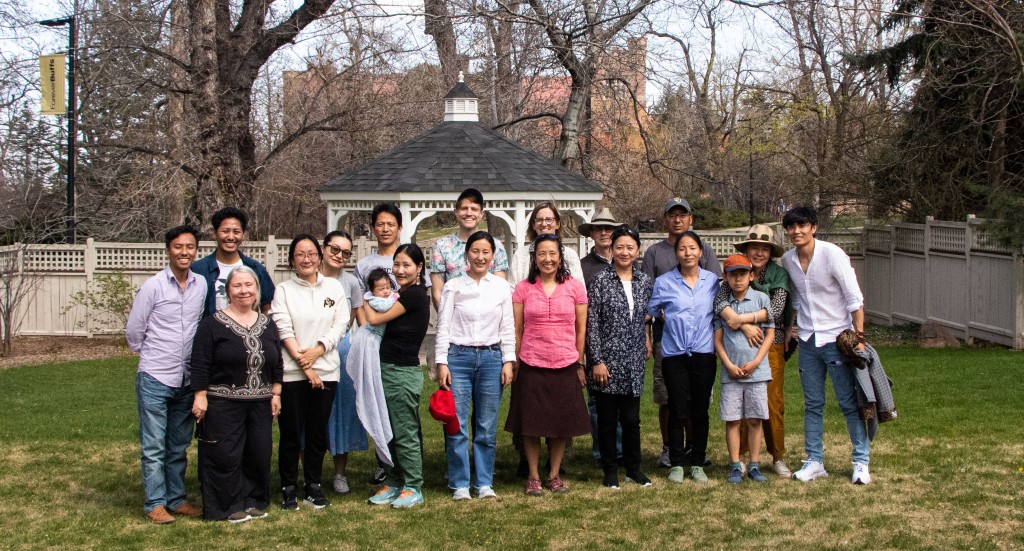
It’s been an amazing year of celebrating Tibetan women writers, thanks to the UVA Tibet Center, Tibet Himalaya Initiative at CU Boulder, Northwestern University, and more. In April, CU Boulder was honored to host Tibetan women writers Tsedrön Kyi, Nyima Tso, and Min Nangzey for a public reading of their works and lunch symposium with Tibet Himalaya Initiative faculty, graduate students, visiting scholars, and local translators. Thanks to Tashi Dekyid, Erin Burke, and Jue Liang for gathering an incredible group of Tibetan women writers from North America, India and China at UVA and arranging for some of them to visit other US universities.
Here are a few of the events that I have been honored to participate in and help with this year:
- Kayden Translation Symposium, “Buddhist Women and the Literary in Tibet,” on Friday, October 22, 2021 at CU Boulder
- Tibetan Women Writers Symposium, “A Celebration of Tibetan Women’s Literature,” at the University of Virginia, April 8-10, 2022
- Public Reading and Symposium, “Emerging Voices: Tibetan Women Writers,” on April 21-22, 2022 at CU Boulder
- Second Lotsawa Workshop, “Celebrating Buddhist Women’s Voices in the Tibetan Tradition,” on October 13-16, 2022 at Northwestern
- Paris Conference on Tibetan Women Writers at INALCO on January 5-7, 2023
It’s auspicious that this year was also the culmination of a collaboration with Somtso Bhum, my previous MA student now doing her Ph.D. at Northwestern University. Our article, “Parody and Pathos: Sexual Transgression by ‘Fake’ Lamas in Tibetan Short Stories,” was published in April 2022 in Revue d’Etudes Tibétaines. It takes up contemporary Tibetan short stories about sexual abuse by Buddhist lamas and features several short stories by Tsedrön Kyi.
More about the article:
A significant venue for critiquing “fake” lamas and sexual transgressions has been contemporary Tibetan language fiction. The favored style of social realism is particularly well-suited to delve into the messiness of human failings and call attention to exploitative social relations. While not necessarily feminist in intent, short stories about such sexual transgressions—as a form of social critique of male depravity and the mistreatment of women—provide an important complement to more direct advocacy work for women’s rights and access to education and health care. In this article, we do a close reading of Tibetan-medium short stories that depict lamas engaged in sexual misconduct and abuse, comparing fictional accounts by celebrated male authors Döndrup Gyal and Tsering Döndrup with those by less well-known women writers, Tashi Drönma (abbreviated Tredrön) and Tsedrön Kyi.
Read article: http://himalaya.socanth.cam.ac.uk/collections/journals/ret/pdf/ret_63_03.pdf
